7 Deadly Sins
Oil on canvas, 80 x 60 cm, 2014
The 7 Deadly Sins photos
Different instances of the same painting are shown below. The painting is illuminated with a professional spotlight producing thousands of engaging color combinations.
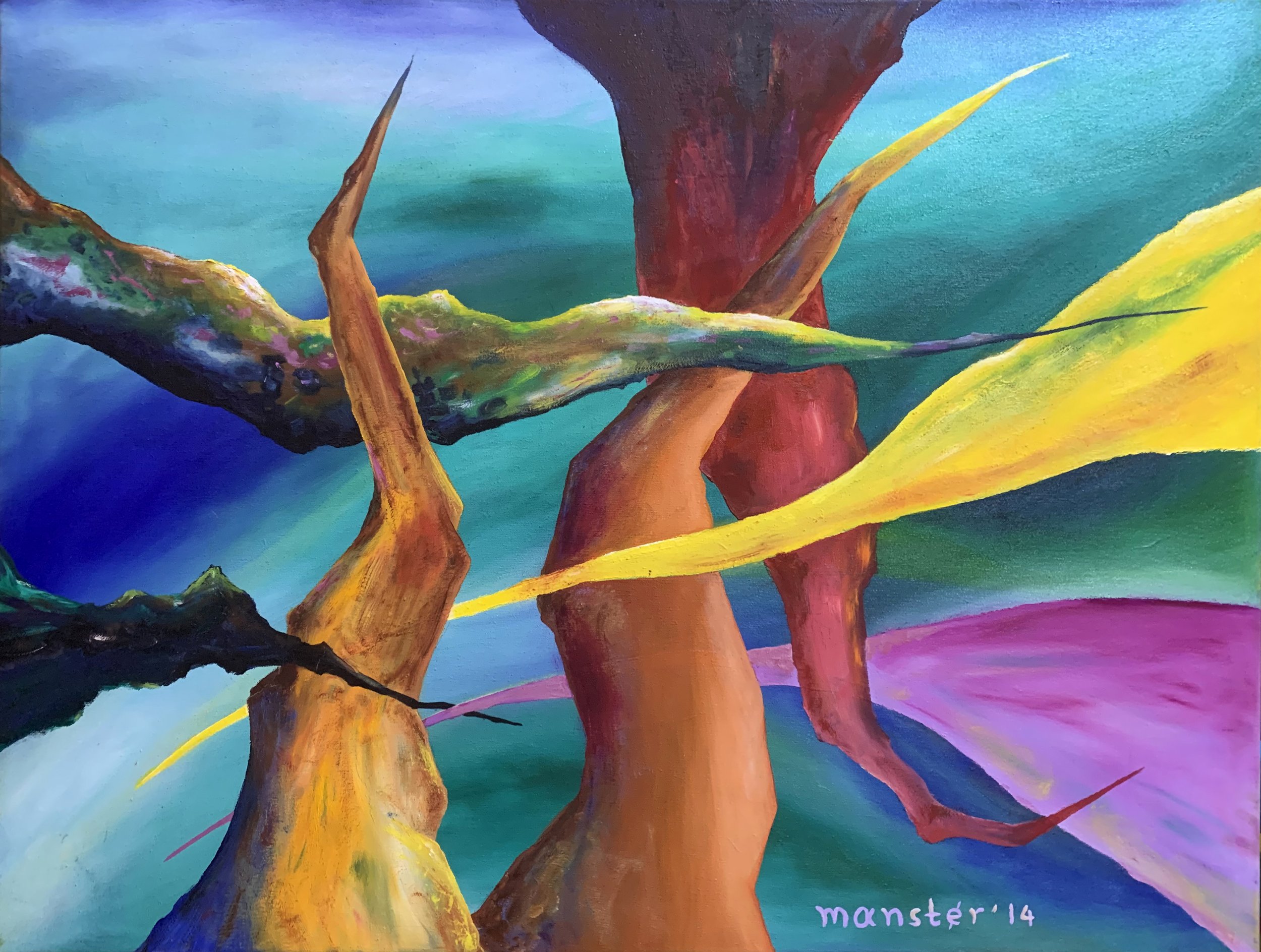
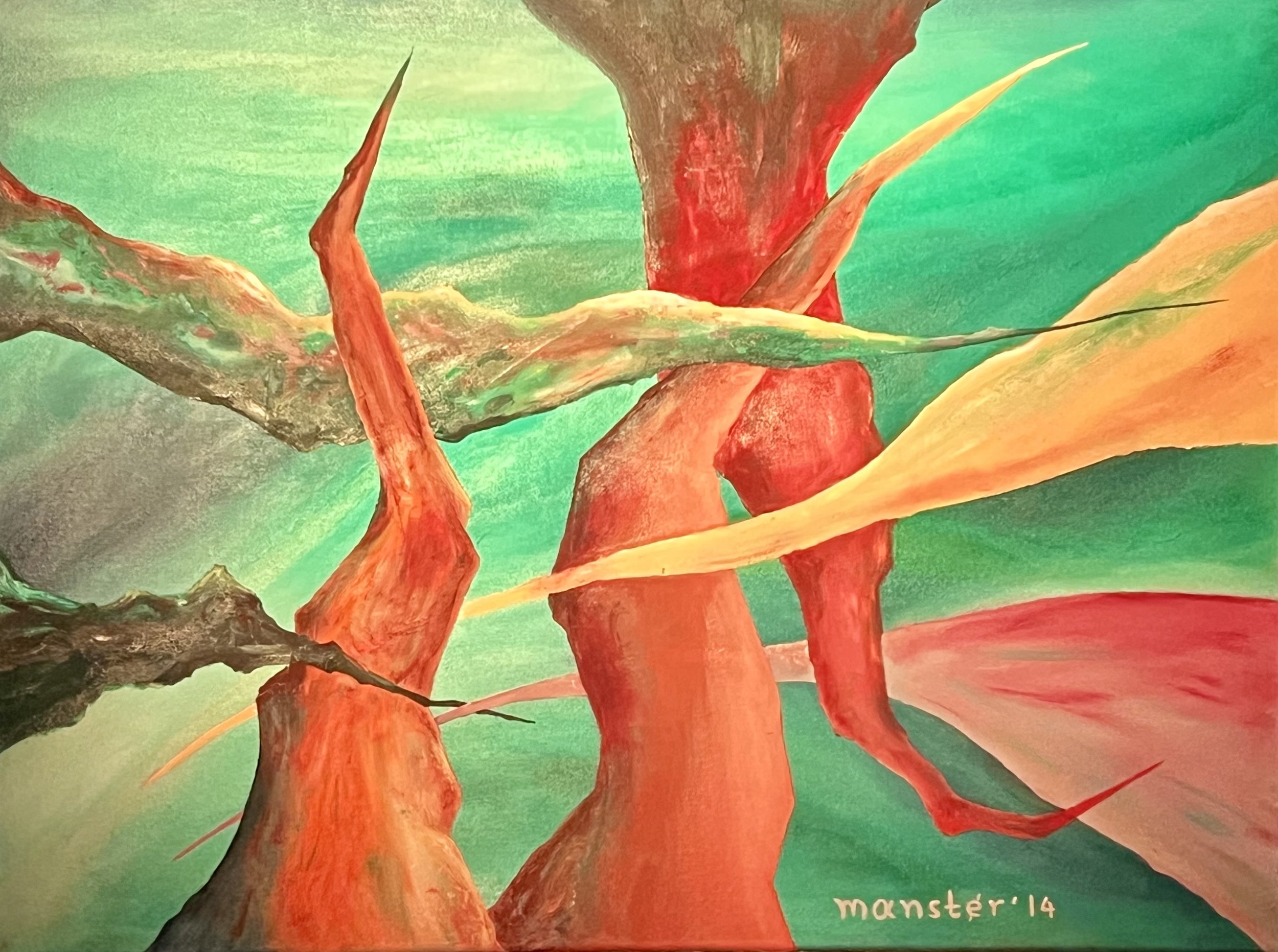
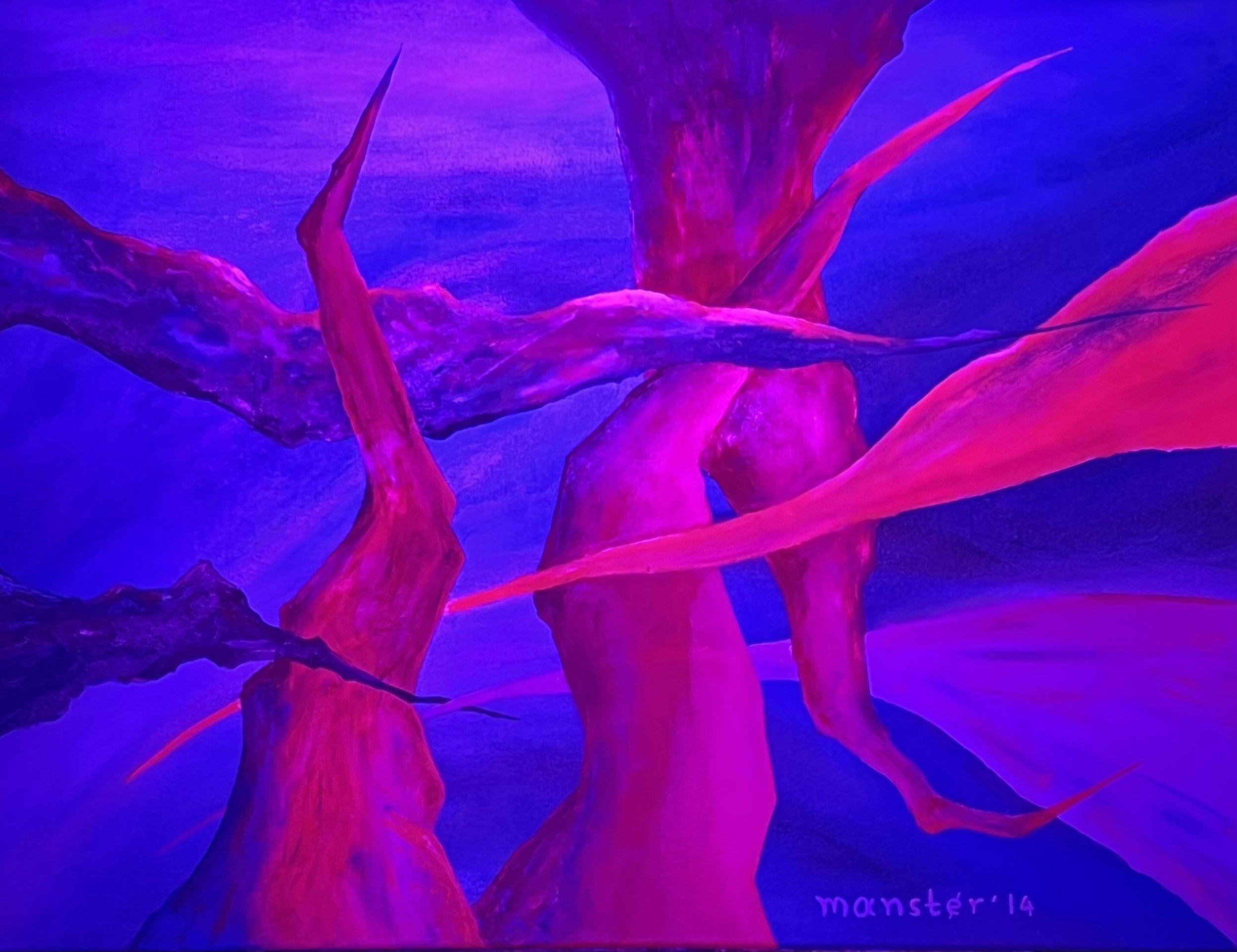
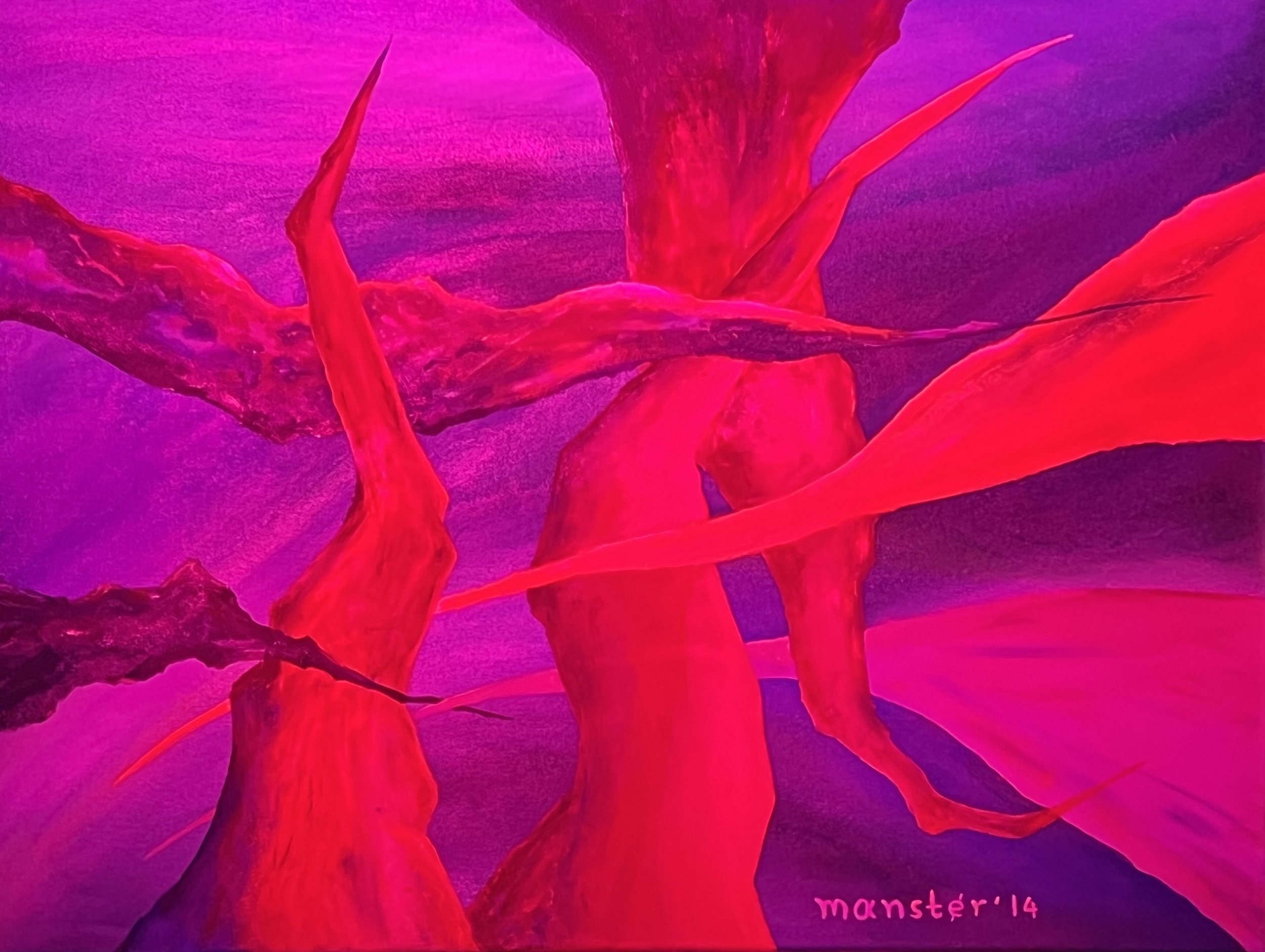
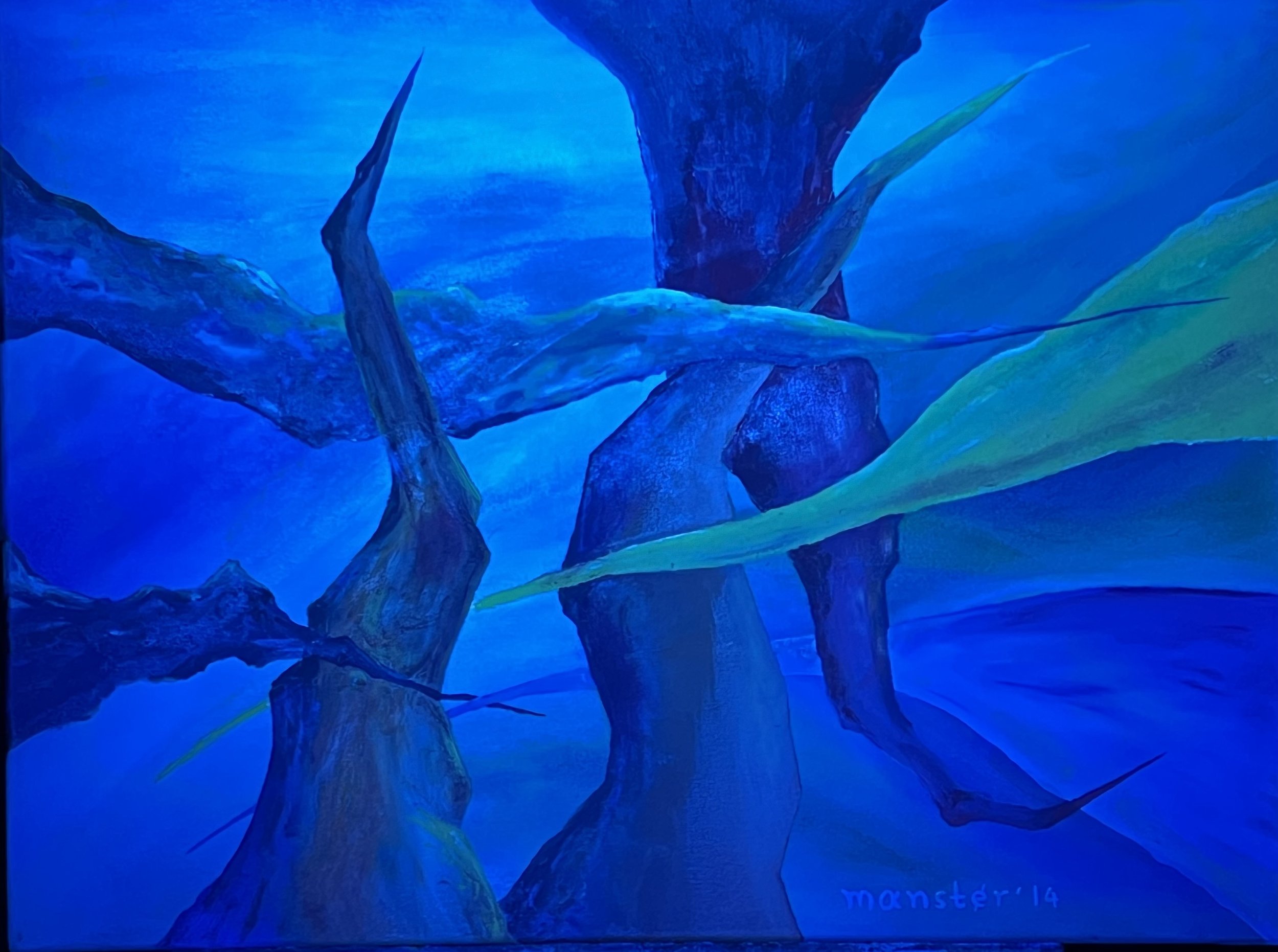
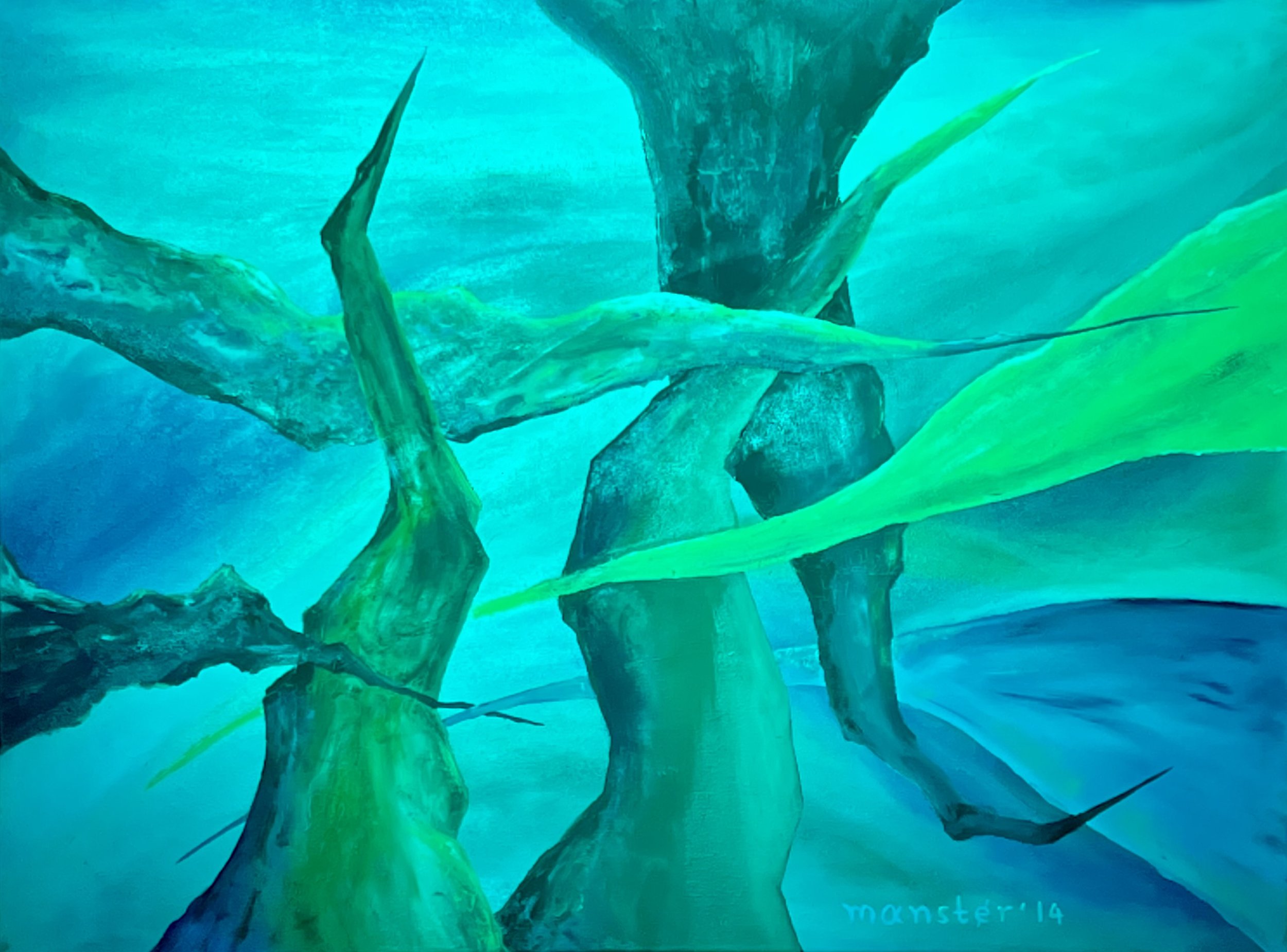
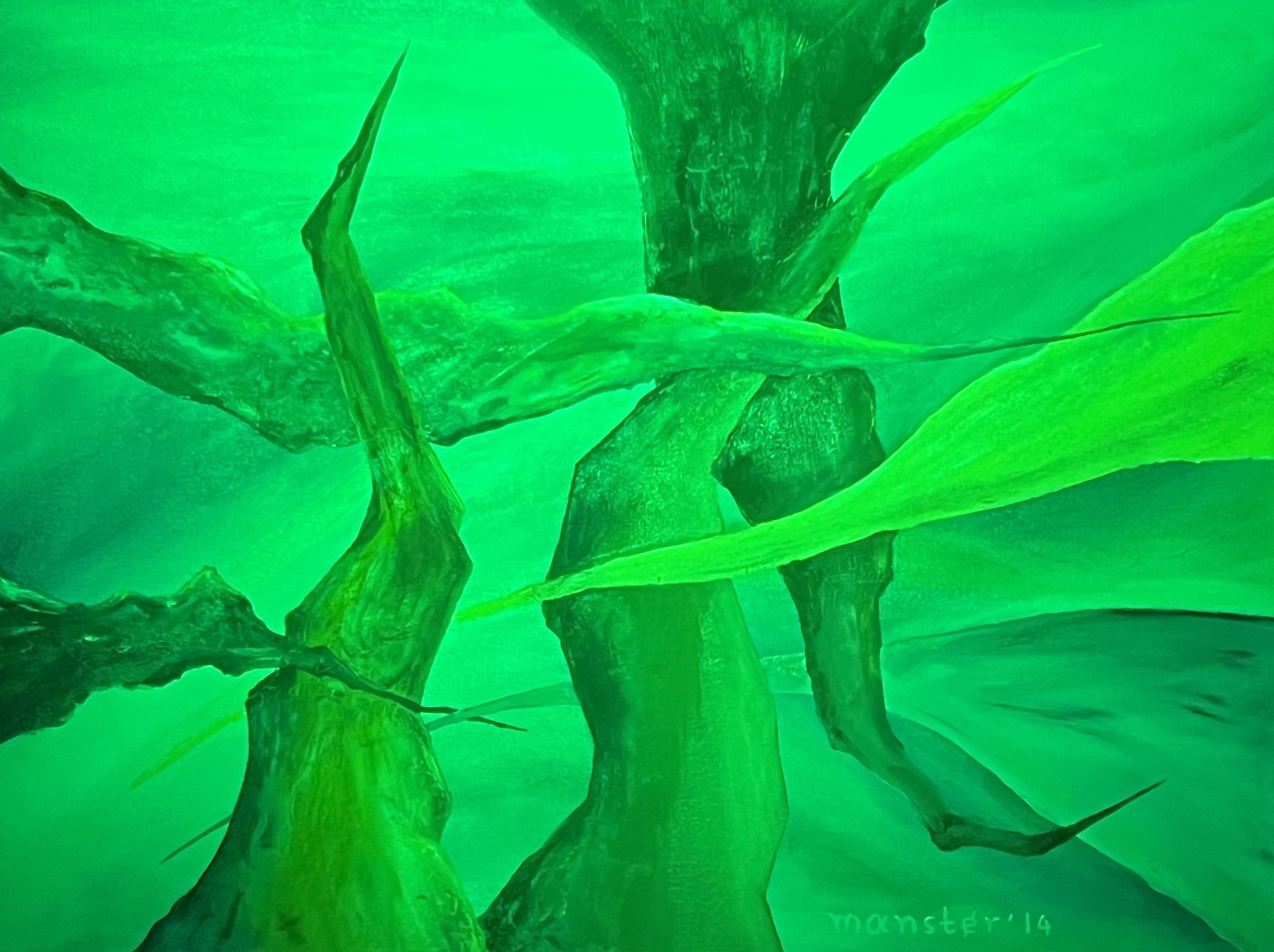
Pride. Envy. Wrath, Gluttony and Lust. Sloth and Greed. The Seven Deadly Sins. Tempting, entertaining, soothing, alleviating. Cheap tranquilizers, soften pain and release temporary shots of fulfillment and relief. They offer a sense of superiority. Everyone is susceptible to their influence, we have all experienced their attraction. Allowing them to overwhelm us can have a devastating effect on our relationship with others and with ourselves. Avoiding them is not easy. First step is to recognize when we fall into their sphere of influence. Next step is a little bit more difficult: to escape! And the only way leading to escape is navigating carefully through them!
Pride is the excessive belief in our own abilities, a feeling that we are more important or better than other people. Envy is the desire to have an item or an experience that someone else possesses (traits, status, abilities, or situation). Gluttony is an inordinate desire to consume more than what we require. Lust is an uncontrollable passion or longing, especially for sexual desires, an inordinate craving for the pleasures of the body. Greed is the desire for material wealth or gain, ignoring the realm of the spiritual. Sloth is the avoidance of physical or mental work, the excessive laziness, or the failure to utilize our talents. Wrath is the uncontrollable feeling of anger and hate towards another person.
The seven deadly sins were first compiled by Pope Gregory I around the year 600. They have been used since the early Christian times to educate and instruct Christians concerning humanity's general tendency to sin. References are only found in religion and it is surprising (at least to me) why they are not studied and analyzed extensively in schools and Universities.
The Seven Deadly Sins was also conceived as a satirical ballet chanté in seven scenes, composed by Kurt Weill and Bertolt Brecht who thought of it as an assault on capitalist morality. It was first commissioned by Boris Kochno and George Balanchine and it premiered in the Théatre des Champs-Elysées in Paris on 7 June 1933. It was the final collaboration between Brecht and Weill.
Original Created: 2014
Subjects: Philosophy, Humanity
Materials/Mediums: Oil on Canvas
Styles: Abstract Expressionism

